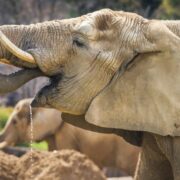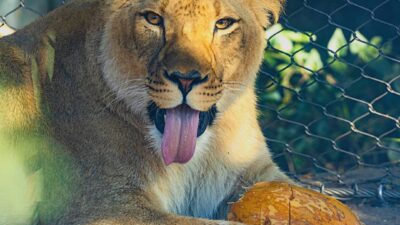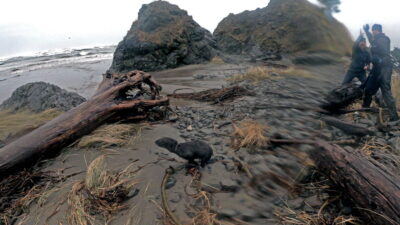Oklahoma City Zoo and Botanical Garden’s Postdoctoral Fellow in Animal Behavior, Dr. Chase LaDue, has recently published a study in the journal Theriogenology Wild about the range of changes in male Asian elephants during musth. The study aimed to fill in the knowledge gap about the reproductive phenomenon in Asian elephants and was conducted in collaboration with researchers from George Mason University, Rajarata University of Sri Lanka, and White Oak Conservation Foundation.
The study analyzed the behavior and physiology of 26 male Asian elephants in zoos across the country, including two of the zoo’s three male elephants, and compared the findings with observations of wild elephants in Sri Lanka over a period of six months. The results showed that musth is not only associated with the pungent chemical signals that males produce but also with other behavioral and hormonal changes. During musth, bull elephants experience a surge in hormones such as testosterone, which amplifies their physical behavior and increases their interest in female elephants.
The study highlights the similarities between elephants in human care and those living in the wild and suggests that zoo professionals are successfully managing the complex behavioral needs of male elephants during musth. The findings of this research can help conservationists in range countries to implement effective conservation strategies to save the threatened populations of Asian elephants.
The Oklahoma City Zoo is home to a multigenerational herd of eight Asian elephants and is a leader in Asian elephant care, research, and conservation. Since 2010, the zoo has contributed over $400,000 to elephant-related conservation projects, including the purchase and preservation of forest habitats for Asian elephants in central Sumatra and Borneo.
In conclusion, the research conducted by Dr. LaDue and his team highlights the importance of specialized care for male elephants during musth and the crucial role that zoos can play in contributing to the understanding and conservation of this endangered species.









